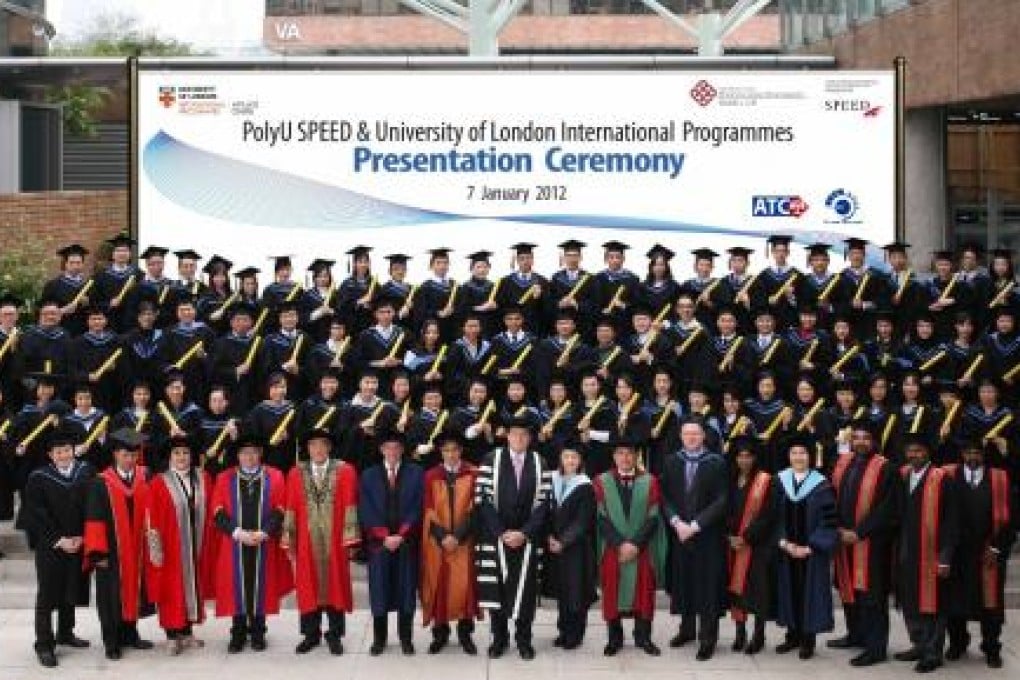Having law on your side
Established in 1999, the School of Professional Education and Executive Development (SPEED) at the Hong Kong Polytechnic University (PolyU) offers comprehensive programmes mainly at top-up degree level in different study modes. These include preparatory programmes for public examinations leading to the awards of Diploma in Law and Bachelor of Laws (LLB) offered through the University of London (UoL) International Programmes.

Established in 1999, the School of Professional Education and Executive Development (SPEED) at the Hong Kong Polytechnic University (PolyU) offers comprehensive programmes mainly at top-up degree level in different study modes. These include preparatory programmes for public examinations leading to the awards of Diploma in Law and Bachelor of Laws (LLB) offered through the University of London (UoL) International Programmes.
Kevin Leong, PolyU SPEED programme leader, believes having legal knowledge, especially in the Common Law system that is practiced in the UK, Commonwealth nations and Hong Kong, is definitely an advantage for any professional.
“A law degree can be useful when an individual is looking to build on previous knowledge and develop expertise in a particular area or even make a transition into a new career,” says Leong.
“Further education is commonplace in today’s competitive job market and is a pre-requisite for those who want to maintain an edge over the rest. The skills and competencies required in Hong Kong are often of a very high standard due to the competitive nature of the market and the high level of candidates looking for work,” says Leong. “Having legal knowledge can certainly be beneficial.”
Offered on a part-time basis and taking between two and four years to complete, the Preparatory Programme for Bachelor of Laws (LLB) aims at preparing students for the examinations leading to a UoL degree or diploma, which gives their holders the same academic standing as those studying on campus.
“Classes mainly take place over the weekend with some additional week-day nights,” says Leong, adding that lectures and tutorials are delivered by academics from Malaysia and Singapore, supplemented by guest lectures by UoL academics. “Those conducting the lectures have many years of experience teaching the UoL programmes,” he says, pointing out that PolyU SPEED in Hong Kong, ATC in Kuala Lumpur and ITC in Singapore are all affiliate centres of the UoL International Programmes.
Each course consists of about 60 hours of lectures and 20 hours of intensive revision. Mock examinations are conducted in December and March.